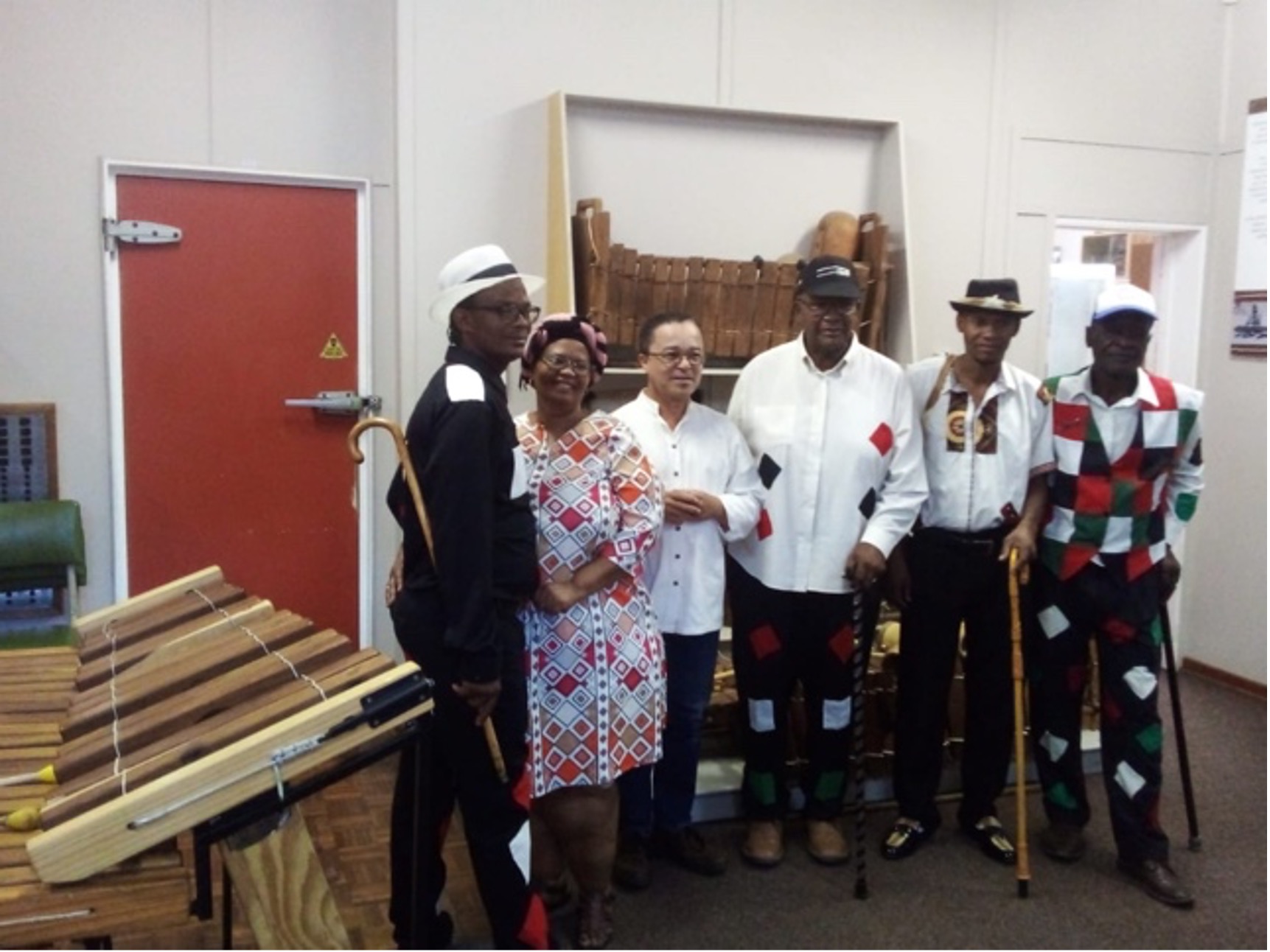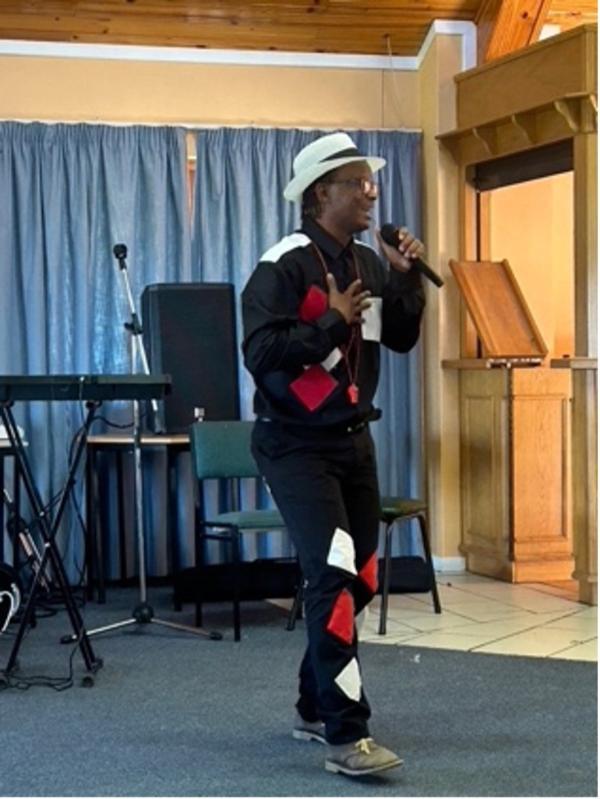
Sounding Indigenous in South Africa: Music and Performance Heritage in Khoisan Revival
On 21 November 2023, team members of a project with the title, Sounding Indigenous in South Africa: Music and Performance Heritage in Khoisan Revival, met for the first time to begin to discuss plans for the execution of the project. In the team were Dr Sharon Gabie of Nelson Mandela University, Mr James Mapanka of the South African Nama Development Association (SANDEVA) and his colleagues, Sarah Titties, Leonard Gewers, Abraham Katimba, and Laurencuis Veldskoen; and Lee Watkins of The International Library of African Music (ILAM). Dr Lyndsey Copeland attended the meeting virtually. Lee Watkins was invited by Dr Lyndsey Copeland of Carleton University in Canada to collaborate on a project concerning the cultural heritage of an Indigenous community in South Africa. The project is being funded by the Social Sciences and Humanities Research Council (SSHRC) in Canada for a period of two years as of mid-2023. This project investigates and collaboratively archive the music and performance practices of people in South Africa’s Northern Cape region who identify as Khoesan and are known as the “first people”. Settler colonialism in southern Africa and centuries of violence against the region’s indigenous peoples decimated their populations. Today, the ancestors of numerous and distinct social groups across South Africa identify as “Khoesan” and claim Indigenous status under this name. Buoyed by global indigenous rights movements, Khoisan activists have made considerable effort in recent decades to revive indigenous practices in South Africa, including languages, cosmological beliefs, song repertoires, and performance heritage.
This project asks, how heritage performance—in particular, dances and song lines—function in the contemporary imagination and telling of indigenous Khoisan social history in South Africa. With community permissions, the project is a collaborative ethnographic investigation of Khoisan heritage performances of music and dance across the Cape. What role does heritage performance serve in the construction of Khoisan identity? And how are performances levered in the ongoing Khoisan cultural revival and political movement? I will also consider how the performance of musical heritage supports different Khoisan community’s interests as against those of the South African government, cultural organizations, and tourists. This research will be of special relevance to Khoisan Councils engaged in state policy reform? many Khoisan activists make recourse to inherited cultural practices such as music, dance, and storytelling, as evidence of their indigenous legal status and right to land.
The proposed project embraces collaboration with indigenous partners and student researchers. The project will begin with a workshop in which researchers and Khoisan participants will jointly craft research objectives, review indigenous ethics protocols, design research activities, and plan project outcomes. A team of experienced ethnographers and students will then spend two years documenting Khoisan heritage performances alongside participants. Over the project’s duration, we will produce multimedia and open access outputs including a project blog, audiovisual recordings, community archives, a drafted edited volume, and public presentations that share knowledge in different ways about Khoisan culture in southern Africa. This participatory model features community archiving as primary method. Together we will establish, maintain, and digitize archives of community made recordings of endangered music and dance heritage. Per best practices, the archives will be co-hosted by communities and partner organizations (Rhodes University’s International Library of African Music and Carleton University’s Institute of African Studies). The methodologies of participatory music ethnography and collaborative archiving are informed by Khoisan research ethics, decolonial practices in ethnomusicology, and a commitment to supporting Khoisan revival and community interests.
This research will recognize and conserve Khoisan cultural knowledge as well as produce new research data for the future (comparative) study of cultural strategies deployed by indigenous groups in diverse contexts. Our expected outcomes will proffer concrete materials for Khoisan communities to use in their cultural conservation and political mobilization efforts.
Dr Lyndsey Copeland

Leonard and Laurencuis gave an impromtu concert
